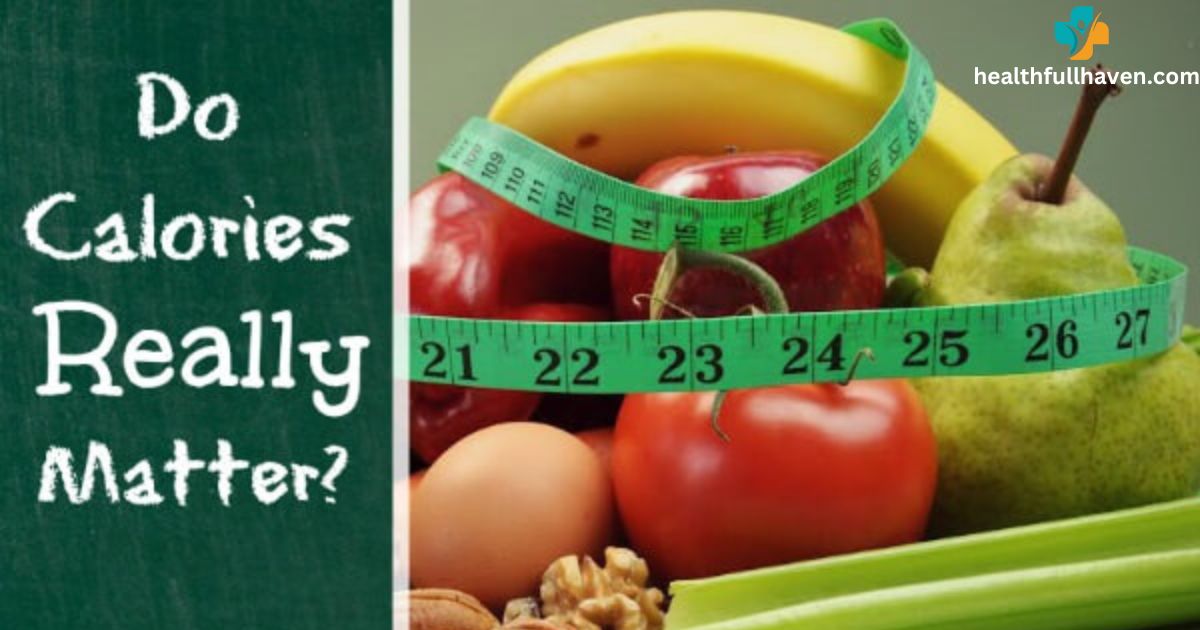The experience of staying on a track to Understanding Calories and Metabolism For Weight Loss evokes the feelings of making a decision while passing through the labyrinth of faulty data and fad dieting. However, at the core of successful weight loss lies a fundamental understanding of two key concepts: That diminish the processing of foods and calories and turn down the metabolic rate, leaving the person feeling lethargic and unmotivated. This article is a comprehensive resource into how the science of weight loss functions, with the focus on the complex linkage between calories, metabolism and a long-term weight loss plan. If your goal is to get rid of a couple of kilos or totally make a new life chance you would be prepare for taking the right decisions that will bring you real results for long.
The Role of Calories in Weight Loss
At its essence, Understanding Calories and Metabolism For Weight Loss is a simple equation: about paring calories consumed with calories spent. In order to shed some weight, you have to take in lesser calories than the ones you would have burnt with daily activities plus the process of your body metabolism taking place. This notion of taking down calories by a vent is the cornerstone of any successful weight loss program. Whereas producing an energy deficit by means of a combination of dietary alterations plus intensified physical activity forces your body to draw on its fats, an action leading to gradually and consequently weight loss.
While every calorie looks equally, not all of them are. Albeit calorie intake remains a major determinant of weight loss and weight gain, things luminate when it comes to the quality of the calories that are consume. These qualities are closely related to overall health and well-being. Those foods that are nutrient-dense for examples, fruits, vegetables, lean proteins, and whole grains, not only support weight lose but also provide vital vitamins, minerals and antioxidants for one good health. Another side to that is highly sugary, flour-based, and fat-filled junk foods that may lead to obesity and have the connection of disease.
Understanding Metabolism and Its Impact on Weight Loss
Metabolism, which is often thought of as the engine of the body, is the process of transforming energy to produce growth and development, as well as enabling all of the biochemical processes to sustain life. Among these processes are that foodstuffs are broken down, energy obtained, and essential molecules synthesize. The metabolic rate, which is the number of calories your body burns even when at rest, contributes immensely to determining how fast or slow calories are burnt by your body and, consequently, this affects how easy or difficult it is to lose or put on weight.
- Your BMR (BMR), being the quantity of calories your body needs to maintain basic physiological functions just at rest and resting, takes a large amount of your daily calorie expenditure requirements.
- The two influential factors are age, sex, body composition and genetics. Therefore, metabolic rate is calculated on the basis of these factors.
- Muscle mass is a vital component of the amount of metabolism body spends. This is because muscle tissue requires more energy to keep than fat.
- In some medical disorders and medications metabolism may be affect what may lead to weight gain or a problem called a drop in metabolism that makes it difficult to lose weight.
- Although the biochemical rate of metabolism is innate, diet, exercise and sleep can have an effect on the way it works, which may be helpful for weight loss.
Strategies for Optimizing Weight Loss Through Diet and Lifestyle Modifications
In addition to creating a calorie deficit, several dietary and lifestyle strategies can optimize weight loss and support long-term success. These include:
- Prioritizing whole, nutrient-dense foods: For balanced calories and diversified nutrient intake, indulge in colorful fruits, vegetables, lean meat products, and whole grain food choices.
- Practicing portion control: Be careful of the size of the serving and mindless eating allowance by using smaller plates or measuring your serving sizes, and paying attention to the feeling of hunger and fullness.
- Incorporating regular physical activity: Target at least 30 minutes of moderate-intensity workout five times weekly for good number of calories spent and improved physical well-being.
- Prioritizing sleep and stress management: A strive for 7-9 hours of good quality sleep every night and breathing and meditation exercises etc. are need to have a healthy metabolism so that the weight gain can be prevent.
Conclusion:
Concluding it all, for achieving sustainable weight loss, we need to consider a lot more complex interplays among calories, metabolism as well as the behavioural and lifestyle factors. Exploring weight loss science and properly following the evidence supported strategies can help you with achieving the desired outcome – steady success. Remember that a series of small daily routines moderately done gets you a long way; therefore, keep persistence and patience in your mind. Through persistence, know-hows, and support on the way, you will ultimately be successful in losing weight. With this, you will have gained a new conviction and a good manner of living.
Call-to-Action (CTA):
If you are ready to start your journey towards weight loss, this is the first step toward that goal. Come visit us today to find out about our unique, personalized weight loss programs and to start your journey toward the healthier and happier you!
Frequently Asked Questions (FAQs):
The number of calories you should consume for weight loss depends on various factors, including your age, gender, weight, height, activity level, and weight loss goals.
The best type of exercise for weight loss is one that you enjoy and can stick to consistently. Both aerobic exercise (such as walking, jogging, cycling, or swimming).
While some foods and supplements claim to boost metabolism and aid in weight loss, the evidence supporting their effectiveness is often limit.
Staying motivated on your weight loss journey can be challenging, but there are several strategies you can try to stay on track. Set realistic goals, celebrate small victories, find a support system, track your progress, and focus on the non-scale benefits of a healthy lifestyle.
While counting calories can be a helpful tool for some people, it’s not necessary for everyone to achieve weight loss. Instead of obsessing over calorie counts, focus on building a balanced plate, practicing portion control, listening to your body’s hunger and fullness cues.

